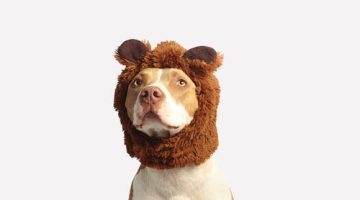
Learning the Truth About the Oral Health of Pets
In terms of your dog’s health, teeth cleansing is as crucial as a healthy diet and frequent vet visits. According to experts, many dogs suffer from periodontal disease before they age three. The inflammation of the tissues that keep the teeth in place is called periodontal disease. Bacterial infections can lead to tooth loss and heart, kidney, or lung problems as your dog matures.
Dogs generally have foul breath, so owners tend to overlook the first indication of periodontal illness, which is their pet’s smell. Keeping your dog’s teeth and gums clean is vital to preventing periodontal disease.
Correcting Myths on Pet Dental Health
Regarding our pets’ dental health, this is a topic that often confuses people. A lot of misconceptions are out there regarding how to look after your pet’s teeth. Here, we’re going to eliminate some of the most popular myths about your pet’s dental health by sharing the truth.
1. Bad teeth will only cause bad breath.
Oral disease has been connected with various systemic diseases, including cardiovascular and liver illness. The untreated dental condition can be transferred to other organs, for instance, the heart or liver, if not addressed. The infections could cause heart valve issues and inflammation of the liver. Dental problems that affect diabetic animals may cause difficulty in controlling their blood sugar level.
To prevent these complications, you must invest in your pet’s oral health. Aside from that, you should also inquire about dog and cat vaccinations, and also parasite prevention to optimize your pet’s overall health.
2. Dental chews or toys can be used to replace brushing.
Even though dental chews and toys may help eliminate some of the plaque on your pet’s teeth, they cannot replace regular brushing using toothpaste designed for pets. You can be sure that your pet’s teeth are getting cleaned by brushing them; toothpaste contains components that assist in the cleaning process. If your pet isn’t happy with a toothbrush in their mouth, using some toothpaste for pets and gauze to clean their teeth could eliminate the majority of plaque.
3. Dental disease is an issue in older pets.
According to experts, 80% of dogs and 70% of cats get dental issues by age three. To prevent this, frequent dental checkups, cleaning, and professional dental cleanings should be instituted. During your pet’s yearly checkup and examination, your vet should conduct an initial oral examination and let you know if there’s something that requires to be addressed.
It is known that genetics play a significant role in dental health; hence young animals might be suffering from severe tooth decay and should be examined routinely. For more information about dental health, especially in puppies and elderly dogs, you can click here or check the websites of reputable veterinary dentists. You can also visit them in their physical office.
4. Bones are great for the teeth of my pet.
Bones, antlers, and rawhide aren’t all great for your pet’s teeth, contrary to popular belief. Bones and antlers, which are particularly tough, could cause your pet’s teeth to fracture or crack, even though any form of chewing may aid in scraping plaque off. This may occur to any dog; however, puppies and older dogs are at risk since their teeth aren’t as strong.
Your pet may get a hold of rawhide, antlers, or small pieces of bone falling off while chewing. Intestinal punctures or stomach ulcers caused by swallowing sharp objects can be fatal.
5. A non-anesthesia dental cleaning is completely safe for my furry friend.
It’s significantly more hazardous for pets to undergo dental treatment without it. Squirming and anxiety are almost inevitable if your pet isn’t treated with an anesthetic before the procedure. Any movement, regardless of how minor, could cause significant injury or discomfort. Before the procedure, your vet will conduct a series of tests to ensure that your pet is a suitable potential candidate to receive anesthesia.
Your vet will let you know if they think anesthesia is unsafe for your pet and suggest a different option. For any inquiries about anesthesia, dental procedures, or other surgical operations, you may check this link or visit a veterinary hospital near you.





